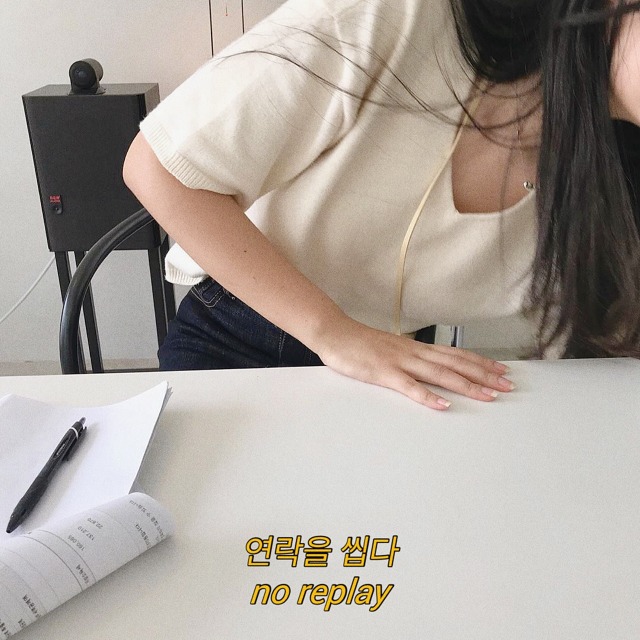#한국어 표현
Translation:
새벽 3시 - 3am
3년동안 사귀었는데 카톡으로 갑자기 헤어지는 거 말이 돼애애? We dated for three years…does suddenly breaking up over text make any sense???
*This phrase is like “We dated for three years…and you break up with me over text?? WTF??” kind of anger. 말이 돼? is like asking “does that make sense” in a WTF kind of way. It doesn’t translate smoothly in English, but it’s a common expression in Korean.
흥분된 상태 - excited state
분노 - rage
——-
새벽 3시 - 3am
내일 너무 기대돼서 잠이 안 오네. I’m so excited for tomorrow that I can’t sleep. (“sleep isn’t coming”)
——-
흥분하다 is a word that many Korean students use incorrectly, and that’s because of the translation. 흥분하다 translates to “to be excited.” And, that’s because it means a sudden rush of emotion.
The problem is that many students want to say something like “I’m excited to go to Korea.” 저는 한국에 가는 것에 흥분해요. (X)
But, this is not how to express that feeling. There is a much better expression. 기대되다. Now, this word is translated as “to expect.” And while, it can be used to express expectations, it’s also used to express “Looking forward to”/“excited for something.”
This is also why many Koreans will say “I’m expecting it,” when they want to say “I’m looking forward to it.”
So, let’s look at how we can use these correctly.
흥분되다/하다
그 사람이 우리 언니를 욕하는 것을 듣고 흥분해서 싸울 뻔했어요. (After) I heard that person talk badly about my sister, I was so “upset” that I almost fought them.
*In this case, 흥분하다 could be seen as “upset.” A rush of angry feelings that made the heart race.
대학교에 합격한 걸 듣고 너무 흥분해서 도서관에서 소리를 질렀어요. (After) I heard that I was accepted into college, I was so excited that I yelled in the library.
괜찮아. 흥분하지 말고 일단 해결할 방법을 생각해 보자. It’s okay. Don’t get worked up, instead let’s think of a solution first.
흥분된 목소리 an excited voice
기대되다/하다
내일 한국에 가서 넘나 기대돼요. I’m so excited, because I’m going to Korea tomorrow.
오늘 데이트 해서 진짜 기대돼요. I have a date today, so I’m really excited.
내가 쓴 글을 기대하지 마. 완전 쓰레기야ㅋㅋㅋ Please don’t look forward to the thing I wrote. It’s completely garbage.
내일 캡틴 마블이란 영화를 볼 거야. 너무 기대돼. Tomorrow I’m going to see the movie Captain Marvel. I’m really looking forward to it.
Note: The difference between 되다 and 하다 is important when understanding these to words. Because 기대되다 and 기대하다 are slightly different. 하다 is used to refer to something that you are actively doing at the time you’re talking about it or in the past. 되다 typically refers to more passive actions or something that is true, but not necessarily using all your attention.
So, 기대되다 is being excited. You’re in that state passively.
But 기대하다 is a constant state of that excitement or expectation. Which is why we say 기대하지 마. Don’t be excited. Because it’s a little strange to say 기대되지 마 “Don’t become excited" in Korean. Because 되다 refers to something out of your control most of the time. That’s why it’s passive. So, it’s strange to say don’t “become” excited when you have no control over it.
Anyway, good luck everyone! 기대되다(to be excited for, to look forward to) is a great word to use. It’s used all the time. Unlike 흥분되다, which is not overly common in comparison. And also, 흥분 is used as “sexual excitement,” so, you don’t want to say 내가 흥분했다 in the wrong situation. It might become awkward.
Follow me for more Korean posts in the future. I have a new “guide” that I’m working on right now. So, I hope to finish it and give it to you guys to practice soon!
Post link

1. 미래가 없다 to have no future
2. 미래가 밝다 a bright future
3. 미래가 어둡다 a murky future
4. 미래가 다가오다 the future is approaching
5. 미래가 불투명하다 to have an uncertain future
6. 미래를 꿈꾸다 to dream of the future
7. 미래를 내다보다 to look ahead to the future
8. 미래를 설계하다 to shape the future
9. 미래를 예측하다 to predict the future
10. 미래를 상상하다 to imagine the future

1. 마음이 따뜻하다 to be warm-hearted
2. 마음이 바르다 to have an upright heart
3. 마음이 좁다 to be narrow-minded
4. 마음이 넓다 to be big-hearted
5. 마음이 약하다 to be soft-hearted
6. 마음이 무겁다 to have a heavy mind
7. 마음에 걸리다 to trouble one’s mind
8. 마음을 터놓다 to open oneself up (to)
9. 마음을 열다 to open one’s mind
10. 마음이 통하다 to be on the same page
11. 마음이 맞다 to be of one mind
12. 마음을 졸이다 to be nervous
13. 마음이 놓이다 to feel easy (about)
14. 마음을 안정시키다 to calm oneself
15. 마음이 울적하다 to be gloomy
16. 마음이 굴뚝 같다 to want very much
17. 마음의 짐을 덜다 to take a load off one’s mind
18. 마음을 상하게 하다 to hurt one’s feelings
19. 마음이 들뜨다 to feel excited
20. 마음이 풀리다 to thaw (toward a person)
21. 마음을 풀다 to get rid of anger
22. 마음을 정하다 to make up one’s mind
23. 마음을 돌리다 to change one’s thoughts
24. 마음을 먹다 to put one’s heart into
25. 마음을 붙이다 to attach one’s mind
26. 마음을 사다 to draw someone’s attention
27. 마음에 두다 to put something in one’s mind
28. 마음에 있다 to be in one’s mind
29. 마음에 차다 to be satisfied
30. 마음 같아서는 if it’s like my mind
31. 마음의 준비 preparation in one’s mind
— 나는 마음에 두고 있는 사람이 있다 - I have someone in mind.
— 그는 마음이 약해서 부탁을 거절하지 못한다 - He’s got a soft heart and can’t say no when people ask him to do something.
— 마음이 편해야 몸도 편하다 - A sound mind makes a healthy body.
— 선생님의 말씀이 정말 마음에 와 닿았다 - The teacher’s talk really touched my heart.
— 그 문제가 자꾸만 마음에 걸린다 - I keep thinking about the problem.
— 시험에 떨어질까 봐 마음을 졸였다 - I was anxious about whether or not I failed the exam.
— 네 마음을 상하게 하려고 한 것은 아니다 - I didn’t mean to hurt your feelings.
— 마음 편히 가지세요 - Try to relax.
— 이제 마음이 한결 가볍다 - I’m so relieved now.
— 마음만 먹으면 못 할 것이 없다 - If I put my heart into it, there’s nothing I can’t do.
— 오늘은 일할 마음이 나지 않는다 - I don’t feel like working today.

— 그렇다고 치자 “Ok let’s just say that”

— 희망고문을 하다 to give false hope

— 어떤 행동을 제대로 하지 않음을 나타내는 표현.

— 연락했는데 응답이 없을 때.
- 연락 -> 전화/문자 call/message
- 씹다 -> 무시하다 to ignore



